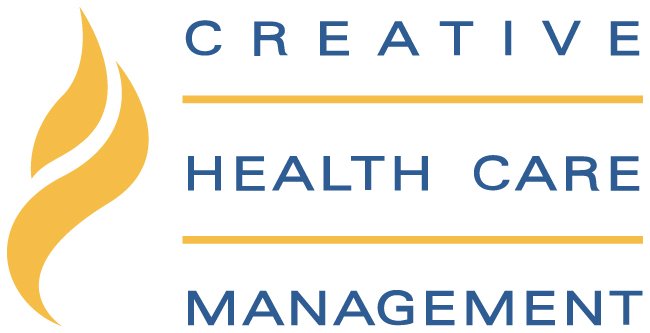The healthcare industry is expected to show an annual growth rate of 10.95%, with forecasts saying its revenue will reach US$60.72 billion in 2023. It’s undeniably the most crucial and challenging of all sectors!
Behind these numbers are human beings working together to ensure a successful healthcare provision. And with so many workers from different backgrounds coming together in one place, it can be hard to manage how everyone interacts.
At Creative Health Care Management (CHCM), we acknowledge the importance of having a healthy work environment. There’s always a conflict resolution and an answer on how to deal with difficult coworkers.

People in the Hospital and Healthcare Industry
When we say hospital and healthcare industry, many professionals, roles, and responsibilities are involved. These include the following:
Doctors
Consultants, registrars, residents, interns, and student doctors treat and manage patient care. They’re responsible for assessing and diagnosing illnesses, prescribing medications, and providing medical advice.
Nurses
These professionals provide general nursing care to patients and assist doctors with medical procedures. They also help educate patients and their families on managing specific conditions.
Allied Health Professionals
These professionals perform a range of medical tasks and patient treatments. They include podiatrists, pharmacists, physiotherapists, dietitians, occupational therapists, radiographers, and more.
Hospital Staff
The healthcare industry also thrives through the hard work of clinical assistants, patient services assistants, and porters. There are also volunteers who help with daily operations.
Administrative Personnel and Human Resources Department
These professionals carry out non-medical tasks such as billing and human resources. They manage the administrative side of life in the hospital or healthcare facility, ensuring that it runs efficiently.

Who Is the Difficult Colleague?
Like any workplace, you may find difficult coworkers, difficult people, and difficult situations in the hospital. While it’s always best to think it’s never personal, sometimes the coworker’s own behavior goes beyond what’s considered professional and appropriate. Here are some types of difficult coworkers:
The Disruptive Worker
The American Medical Association (AMA) defines “disruptive behavior” as “Personal conduct, whether verbal or physical, that affects or that potentially may affect patient care negatively constitutes disruptive behavior.”
On the other hand, the organization responsible for hospital accreditation defines disruptive coworkers as those who display overt actions. These include verbal outbursts, physical threats, and passive-aggressive activities.
This tough coworker may seem to know it all but lacks respect and the communication style to collaborate with colleagues. As a result, they speak or act in ways deemed inappropriate. This difficult person may often hear from their manager or the human resources department.
The Problem Coworker
Sharing working spaces with healthcare workers with poor clinical skills is inevitable. Unfortunately, some workers don’t have the same commitment and dedication to their job. They may be disorganized, inefficient, or just plain lazy.
You may need to have a conversation about something once or twice, but repeating it multiple times can be problematic.
The Worker With Poor Social Skills
Some healthcare workers also have poor social skills, communication style, and insufficient empathy. They have trouble connecting with others, viewing things from a different perspective, and forming positive relationships.

Why Are There Difficult Coworkers?
When someone displays problematic behavior, it’s natural to feel upset and wonder how to deal with it. But why do these issues happen in the first place?
Personality Differences
The most common reason for conflict is simply the difference in how a worker is wired. People may have different personalities, values, preferences, and backgrounds that come into play when interacting with others.
Lack of Education or Training
Apart from the difference in perspective, some coworkers may lack the education or training necessary to do their job properly. It may lead to ineffective communication and misunderstandings between coworkers.
Personal Stressors and Trigger Points
It’s also important to consider how a coworker’s personal issues affect their interactions with a coworker. For instance, it could result from a problem at home, financial issues, or past trauma.
Workplace Culture and Company Policies
It’s also possible that a particular workplace culture or policies are to blame for difficult coworkers. In some cases, the root of the problem may be the lack of a clear and consistent system of communication, rewards, and incentives.

Why Is It Important To Navigate Coworker Relationships?
Many non-confrontational healthcare workers have the mindset of doing whatever it takes to fulfill their job duties. However, our positive relationships with other coworkers also are vital to working in a healthcare environment. As counseling psychologist Chivonna Childs, Ph.D., said, healthcare workers spend eight to 12 hours a day together. If the workplace is toxic, it can take a toll on people’s mental and emotional health, leading to burnout.
Moreover, Emily M Webb and Maureen P Kohi in “How to Navigate Toxic Behaviors at Work” said that the actions of one toxic person could have ripple effects. These actions create more widespread discontent and conflict. Healthcare workers’ failure to navigate these relationships can decrease morale and diminish productivity.
Effects of Having Difficult Healthcare Coworkers
Is having a positive relationship with our coworkers really that important? Yes, it is. Without coping mechanisms, difficult coworkers can harm how we do our job, interact, deal with others, think, and affect us in the long run.
Increased Stress and Anxiety
Constantly dealing with a difficult coworker’s behavior can lead to increased stress and anxiety. For example, a difficult coworker might be dismissive, disrespectful, or rude. This behavior could cause the other person to feel inadequate and unmotivated to contribute their best work.
Decreased Efficiency and Performance
Coworkers may feel intimidated, overwhelmed, or uncomfortable in their environment, leading to employees avoiding the situation or shying away from talking, taking risks and trying new things.
Low Job and Life Satisfaction
Coworkers who are hostile, unsupportive, or critical can decrease morale, making it difficult to stay motivated and inspired.
How To Deal With Difficult Coworkers
If you’re at a loss on how to manage your career and relationships with a difficult coworker, here are some of the ways you can do it:
Focus on Yourself
The best thing you can do for your career and yourself is to focus on becoming a better healthcare worker. When you’re confident in your abilities and have the right mindset, you’ll be able to focus and handle your difficult coworkers more effectively.
Seek To Understand
Rather than reacting to the difficult person or situation, try to take a step back and understand how the other person is feeling. It’s possible that they’re also feeling overwhelmed and need a way to express their feelings. Remind yourself: their actions may not be intentional.
Set Boundaries
It’s also important to set boundaries when interacting with a co worker well. This tip means learning to say no and avoid drama despite the tension. If a colleague is disrespectful or unprofessional, you have the right to set limits and explain how their behavior affects you.
Communicate Openly
An honest, open, private conversation talking about your feelings can help build trust and foster better relationships with a worker. Talk and listen, and make every conversation feel safe. Explain things with respect and be aware of your behaviors.
Be Objective
Always try to remain objective, stay positive, and not take things personally. Be aware of how you’re feeling and how it’s affecting the way you react to or deal with a difficult coworker. This tip can help you keep calm and maintain a positive attitude even in challenging situations.
Ask for Feedback
Find a trusted colleague and ask about your own behavior and own actions. If appropriate, you can ask a worker how to better communicate with them. It’s another way to build a more constructive perspective.
Bigger Strategies for Dealing With Difficult Coworkers
Dealing with a difficult healthcare coworker on your own requires patience, confidence, and resilience. It’s also important to have a support system and more extensive strategies in place to keep a positive work environment. At CHCM, we support healthcare teams in creating a workplace that nurtures and values its co workers and team members.
What are some strategies that the hospital environment should have in place?
Commitment to my Co-worker Card
These helpful cards are used by thousands of health care workers around the world. The card is a series of 10 commitments complied by Marie Manthey to guide healthy relationships and culture transformation.
Use the Shared Governance Leadership Model
Partnership, equity, accountability, and ownership are the values and principles of the shared governance leadership model, which gives healthcare workers a voice in decision-making. This model ensures that everyone has an active role in the hospital’s operations and decisions.
Shared governance bridges communication gaps between staff and management, encourages collaboration among colleagues, and creates a better work environment. It also provides a platform for workers to communicate their challenges and needs in the workplace.
Learn the Relationship-Based Care® (RBC) Framework
Relationship-Based Care® (RBC), a culture transformation care model and operational framework, aims to improve employee engagement and retention. Moreover, it enhances the patient experience, quality, safety, and financial performance, all essential for a functioning hospital. This framework focuses on three key relationships:
- Self
- Colleagues
- Patients and families
Learning and implementing RBC principles can help build a better environment in the hospital and improve how a coworker relates to others. When healthcare workers feel a deep sense of purpose, they also feel empowered and trusted. As a result, they become more productive and engaged in their work.
Adopt the “Re-Igniting the Spirit of Caring” Mindset
CHCM also provides a Re-Igniting the Spirit of Caring” workshop, which reconnects healthcare workers with their purpose and expands their capacity to care. Moral distress and burnout are two major problems in healthcare, which can also lead to difficult behavior. When we target these issues, we help healthcare workers understand how to handle these types of situations and how to be better team players.
When healthcare workers re-ignite their spirit of caring and love for their own work, they build a healthier environment for themselves and their patients. This mindset directly contributes to how well coworkers approach their daily tasks together. It takes time and effort, but healthcare teams can build a more connected and harmonious work environment with the proper guidance.
Focus on Belonging, Diversity, Equity, and Inclusion (BDEI)
Another critical factor in how well a team works together is how you prioritize belonging, diversity, equity, and inclusion. BDEI principles encourage an environment where everyone feels safe, respected, and valued. This type of setting helps bring out the best in healthcare teams.
Discrimination also has a direct impact on how healthcare teams work together. When a hospital worker feels like an “outsider,” it can affect how they communicate and collaborate with their peers. BDEI principles help ensure everyone is comfortable and accepted, fostering higher engagement and better teamwork. It’s crucial to recognize how these differences shape the workplace environment.
Creating an environment where everyone can thrive and be successful, regardless of race, gender, or background, is how CHCM helps hospitals foster a professional and productive atmosphere.
Invest in Consultations and Workshops
Lastly, CHCM provides consultations and workshops to help hospitals set the right tone in the workplace. By investing in these services, hospitals are better equipped to foster a work culture that promotes collaboration, communication, and trust.
CHCM’s Leading an Empowered Organization workshop, for instance, has already helped over 200,000 leaders, managers, and healthcare workers create a healthier work environment. The three-day workshop improves individual and group performance, focusing on decentralization and empowerment.
Moreover, our See Me as a Person: Four Practices to Improve Quality, Safety and the Patient Experience two-day workshop aims to improve quality, safety, and the patient experience by optimizing relationships. We help healthcare workers tune in with themselves and others, truly wonder about others, follow what they learn, and hold a haven for each other.
CHCM also promotes Trauma Informed Leadership, knowing and believing that trauma can impact how people approach their own work life. COVID-19 has caused widespread trauma and burnout. It has also produced complex behaviors. A trauma-informed workplace helps employees talk about stress and deal with a difficult coworker.
Our competency assessment consultation and workshops, based on Donna Wright’s bestselling book, The Ultimate Guide to Competency Assessment in Health Care, also provide insight into reducing turnover and developing a positive work culture. Understanding how and why employees are successful in their roles is crucial, as this affects how well your team works together.
Transform Health Care With Creative Health Care Management (CHCM)
Recognizing and acknowledging how difficult a team member can be is the first step in transforming how healthcare teams work together. With Creative Health Care Management’s guidance, you can understand individual differences and how to foster a healthier work environment.
Is there a need to deal with a very difficult colleague or coworker? From workshops and consultations to BDEI training, we can help you create a team that goes beyond the status quo. Together, we can transform how healthcare teams work together. Talk to us today!
Sources:
https://chcm.com/solutions/shared-governance/
https://chcm.com/solutions/relationship-based-care/
https://chcm.com/solutions/re-igniting-the-spirt-of-caring/
https://chcm.com/solutions/see-me-as-a-person/
https://chcm.com/solutions/belonging-diversity-equity-and-inclusion-bdei/
https://chcm.com/solutions/competency/
https://chcm.com/solutions/leading-an-empowered-organization/
https://chcm.com/solutions/trauma-informed-leadership/
https://shccares.com/five-tips-for-dealing-difficult-co-workers/
https://www.karger.com/Article/Fulltext/481200
https://everynurse.org/strategies-dealing-with-challenging-colleague/
https://health.clevelandclinic.org/how-you-can-best-deal-with-challenging-co-workers/
https://www.cdc.gov/niosh/topics/healthcare/default.html
https://pubmed.ncbi.nlm.nih.gov/31299248/
https://www.ncbi.nlm.nih.gov/pmc/articles/PMC4768542/





